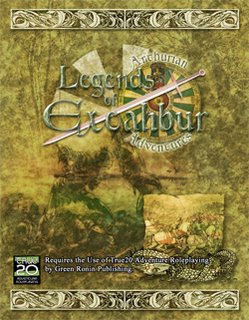Another sneak peek for everyone, and a mention that this is now on sale at RPGNow.
And the introductory adventure for the setting, the Feeding Grounds, has been out for a bit now, since it was run at this year's Gen Con.
Now that I'm done paying the bills. Enjoy some more of the early history of the city of Bastion.
Early History: Whittaker takes command
No one knows why the Midwest was spared so many of the ravages suffered by the rest of the country. The missiles did not target the great cities. The android commanders and combat walkers all mysteriously shut down in the early days of the conflict. Rather than commanding the armies of man to their destruction with “brilliant” battle strategies that used human beings as cannon fodder or becoming the threat themselves (more details on these events can be found in the Metal Gods sourcebooks) the robots of the Midwest went dormant early during the Fall and remained that way for the length of the conflict. The humans had to fend for themselves.
When Whittaker arrived to take command of Milwaukee, he found the city in chaos. Local authorities were ill-equipped to manage fire and other emergency services during the best of times, used to leaving such things to their android city managers. During a crisis, they were worse than useless. As fires raged uncontrolled through the city, (most the result of civilian rioting) the Mayor would stand before the city manager AI pleading like a child for it to do something. Whittaker advocated forgetting the robots, even stripping them of their pumps to allow humans to fight the fires. Such lunacy was not going to be tolerated by the inebriated Mayor however. Stripping the robots was madness! Any minute they would reboot and begin to help the city recover from the devastation. Whittaker was to be placed under arrest.
Stories vary about who it was that actually killed the Mayor in those dark, early days. Many say it was Whittaker himself while other writers, who see Whittaker as a more benevolent figure, place the blame at the feet of his second in command, Officer Growell of the local police (a somewhat menacing, Iago-like conspirator in the stories that have come down from those days). In reality who killed the Mayor is somewhat moot. He was killed and Whittaker took command. The dormant robots were stripped for parts, water pumps, energy cells, dismantled to create cover or simply pushed into place to hide behind. The decision had been made that humans were not weak and did not need the robots to defend them.
Over the course of several bloody weeks rioting was put down by any means necessary. The jails and asylums were emptied. Everyone, regardless of their past histories would be given an equal chance to help put down the chaos gripping the city. Anyone who was found to be a destabilizing influence was summarily sentenced to death and hung (bullets being far too valuable to waste on an execution). Oddly, the criminals and the insane were some of the most effective men in Whittaker’s early regime. It seemed these individuals were not cut out to fit in with the placid, drug-induced stupor preferred by the governments of the day. They adapted quickly to the vitality and decisiveness demanded by these new times much more quickly than many of the “stable” members of society who cracked under the strain.
Soon it seemed the entire city had been divided into two camps: those who followed Whittaker and those who followed the Pariahs. After a few tense days of calm following the end of the last riot, with the last rape gang swinging from the light poles on East Clybourn Street that a confrontation was sparked when the leader of the Pariahs demanded Whittaker cede control of the government to God (meaning the Pariahs). The federal government, represented by Whittaker had to be punished for bringing about the apocalypse. Whittaker responded with his usual reserve. His soldiers followed him as they always had, without question. They had decided long ago to follow him to their deaths and fulfill his promise of no surrender and no defeat. He would rule until relieved by a lawful representative of the government of the United States and that was all there was to it.
The Pariahs
The Pariahs had begun as a televangelist network in the days before the Fall. Society had become debased and debauched, they warned and soon God would strike it down as he had Sodom and Gomorrah. Once laughing stocks, the ranks of this group swelled in the time of the Fall. They were proven right, it seemed. God was back and he was angry. The Pariahs took it upon themselves to punish the wicked, who consisted of every man, woman and child. Sinners were stoned to death. The faithful were to flog themselves in eternal penitence and all had to live by the Word of God, according to the old laws of sacrifice and fidelity.
Having succeeded in putting an end to the initial chaos and panic that gripped the city when he arrived, Whittaker, along with his federalized police, fire and highway patrol units was not about to turn control of the city over to religious fanatics. The fight was quick but brutal, with the Pariahs possessing an inhuman glee about dying in support of their cause, believing it guaranteed them entrance to Paradise and escape from the hell of the world. Whittaker’s soldiers, for their part, took no joy in their duty as they drove the Pariahs out, hanging the thousands who preferred death to exile.
